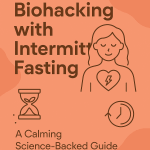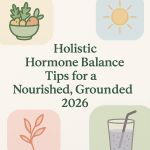Giving thanks has many health benefits. It can help reduce stress, improve sleep, boost immunity, and more.
Thanking helps us focus on the positive aspects of our lives, which can lead to increased happiness and satisfaction. When we focus on what we’re grateful for, we are less likely to dwell on negative thoughts and experiences.
Giving thanks can also help us build stronger relationships. Showing gratitude can make others feel appreciated and valued, which can help to foster closer bonds.
What is Thanksgiving?
Thanksgiving is a memorable holiday in the United States where people come together to enjoy a feast and give thanks for all the good things in their lives. This holiday has its roots in the harvest celebrations of the early American settlers, who were thankful for the land’s bounty. We may not be settlers in a new land, but we can all find things to be thankful for.
One of the best things about Thanksgiving is the food. Traditional Thanksgiving meals usually include roasted turkey, stuffing, mashed potatoes, cranberry sauce, and pumpkin pie. These days, there are many different versions of Thanksgiving dinner, with families adding their favorite dishes to the mix.
Another great thing about Thanksgiving is that it is a time to reflect on all the things we are thankful for––the people and things that make us happy and think about how we can improve in the year ahead.
History of Thanksgiving
Although the first Thanksgiving is often shrouded in myth and legend, it has its roots in an actual historical event. In the autumn of 1621, the Pilgrims, a group of English Puritans who had recently arrived in present-day Massachusetts, held a three-day feast to celebrate the harvest. They invited the Wampanoag, a nearby Native American tribe, to join them.
They had faced many challenges in their first year in the New World, and they were grateful for the bounty of the harvest. The feast lasted three days and included turkey, venison, duck, geese, oysters, mussels, lobster, eel, and corn. The tradition of celebrating Thanksgiving in the United States began with the Pilgrims, but the holiday became official in 1863 when President Abraham Lincoln declared it a national holiday. Today, Thanksgiving is still a time for giving thanks, but it has also become a day for family, friends, and feasting.
Biblical benefits of thanksgiving
Thanksgiving is a significant theme in the Bible. Here are just a few of the many verses that discuss the advantages of giving thanks:
“Give thanks in all circumstances; for this is God’s will for you in Christ Jesus.” (1 Thessalonians 5:18)
“Be thankful for what you have; you’ll end up having more. If you concentrate on what you don’t have, you will never, ever have enough.” (Romans 8:18)
“And whatever you do, whether in word or deed, do it all in the name of the Lord Jesus, giving thanks to God the Father through him.” (Colossians 3:17)
“Give thanks to the Lord, for he is good; his love endures forever.” (Psalm 107:1)
“Enter his gates with thanksgiving and his courts with praise; give thanks to him and praise his name.” (Psalm 100:4)
Why should we be grateful every day?
The idea of gratitude has been around for centuries. The ancient Greeks believed that gratitude was the greatest of all virtues, and the Romans thought it was the key to a happy and fulfilling life. We still know gratitude is essential today, but we may not always know why.
Here are a few reasons why we should all be grateful for something every day:
- Gratitude can help us to find joy in life even when things are tough. When feeling down, gratitude can remind us of all the good things in our lives and help us appreciate what we have.
- Gratitude can help us to develop and maintain strong relationships. When we are grateful for the people in our lives, we are more likely to show them our appreciation. This, in turn, can lead to deeper and more meaningful
relationships.
- Gratitude can help us to achieve our goals. When we are grateful for our lives, we are more likely to be motivated to achieve our goals. Gratitude can also help us to stay focused on our goals and not get distracted by negative thoughts.
- Gratitude can help us to cope with stress. When stressed, gratitude can help us remember all the good things in our lives. This can help us to feel calmer and more positive.
- Gratitude can improve our physical health. Studies have shown that gratitude can lead to better sleep, lower blood pressure, and a stronger immune system.
4 Ways to cultivate gratitude
If you’re looking for ways to cultivate gratitude, here are a few ideas:
– Keep a gratitude journal. Every day, list a few things you’re grateful for. This can be anything from your morning cup of coffee to a beautiful sunset.
– Express gratitude to others. When someone is being nice to you, take the time to write a thank-you note or say thank you in person.
– Perform acts of kindness. Helping others is a great way to make yourself feel good. Whether you volunteer your time or do something nice for someone, acts of kindness can greatly make you feel more grateful.
– Be mindful of the good in your life. Take time each day to reflect on the things that make you happy. This could be your family, friends, job, or anything else that brings you joy.
Health Benefits of Thanksgiving
Gratitude helps improve sleep.
Positive thoughts can help you sleep more peacefully when you feel gratitude. Researchers from the University of Manchester in England found a correlation between gratitude and thoughts before sleeping. The researchers found that gratitude reduces negative thoughts, especially before bedtime, and helps think positive thoughts–––contributing to a more peaceful, longer, and uninterrupted slumber.
Thankfulness helps to lower blood pressure.
Experts say that people with a grateful attitude tend to be more health conscious and tend to avoid smoking and drinking alcohol––-contributing to lower blood pressure in hypersensitive patients.
Gratitude helps prevent overeating.
Susan Thompson, Ph.D., an expert in the psychology of eating, says that practicing gratitude increases individuals’ willpower to reduce excessive eating. You can achieve this by focusing on the food you’re about to eat and being grateful for it instead of thinking about the dishes you like.
Gratitude encourages you to exercise more.
In an experimental study by Emmons and Michael McCullough, participants maintained gratitude journals that recorded their weekly activities. Based on the journals, those who exhibited a more grateful attitude engaged more in healthy physical activity, such as exercising, and had a more positive outlook on life.
Gratitude improves pain tolerance.
Studies show that daily practice of gratitude helps lessen individuals’ sensitivity to pain. Experts point out that being thankful may not eliminate chronic pain but can be an effective pain management tool–– as it shifts the focus away from the physical pain to more positive things.
Gratitude helps keep glucose levels in control.
In a study, scientists found that being thankful led to lower hemoglobin A1c, a glucose control indicator that helps diagnose diabetes. According to the study, grateful people had hemoglobin A1c levels decrease by 9 to 13%
Gratitude extends lifespan
According to a medical study focusing on the risk of developing heart disease and risk for death among women, participants who scored higher in optimism only had a 9% risk of developing heart disease and a 14% lower risk of dying than those who scored higher in cynicism and hostility.
Gratitude helps patients with heart illness.
According to a study, the practice of gratitude contributes to reducing the biomarkers of inflammation by 7% among individuals diagnosed with congestive heart failure.
Mental and social health benefits
Gratitude boosts self-confidence.
A study focused on athletes shows that participants with high levels of appreciation received from their coach also experienced increased self-esteem.
Gratitude helps improve relationships.
According to a study, the positive emotions brought by appreciation play a unique role in establishing a high-quality relationship between couples. When couples actively participate in expressing and receiving gratitude, the quality of their relationship is likely to improve.
Similarly, gratitude also helps to strengthen relationships with friends. Showing appreciation to your friends increases communication and reduces misunderstandings.
Gratitude fosters a healthy social circle.
People who practice gratitude and express it regularly attract people with the same mindset.
Gratitude in a professional setting
Thankfulness enhances retention
A study by the Glassdoor team shows that 53% of employees claim that they would stay longer in a company if their bosses appreciated them more. Another survey points out that 66% of employees will quit their jobs if they do not feel appreciated.
Gratitude enhances productivity.
According to a Glassdoor survey, 81% of employees feel more motivated to work harder when they think their bosses or employers appreciate their work. Various research studies prove that gratitude helps build better relationships among work colleagues, enhances management capabilities, improves decision-making skills, cultivates a sense of fulfillment, and helps improve the workplace environment where employees feel happy, valued, and cared for.














